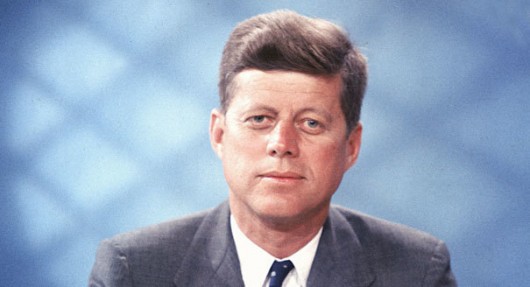55th Anniversary Since JFK Established Peace Corps
 On Mar. 1, 1961, President John F. Kennedy issued an executive order to establish a new “army” of civilians who would volunteer their time to help underdeveloped nations. This army, as JFK referred to it during his 1960 presidential campaign, was the Peace Corps.
On Mar. 1, 1961, President John F. Kennedy issued an executive order to establish a new “army” of civilians who would volunteer their time to help underdeveloped nations. This army, as JFK referred to it during his 1960 presidential campaign, was the Peace Corps.
According to Politico, Kennedy wrote a message to Congress stating that the people of underdeveloped nations were “struggling for economic and social progress.” He also went on to say, “Our own freedom and the future of freedom around the world, depend, in a very real sense, on their ability to build growing and independent nations where men can live in dignity, liberated from the bonds of hunger, ignorance and poverty.”
Congress, at first, was skeptical. In response, Representative Marguerite Sitt Church, who had traveled to sub-Saharan Africa, defended the bill by speaking about the importance of on-the-ground work in underdeveloped areas.
Representative Catherine May noted the impact of Church’s words: “You quite literally could see people who had been uncertain or perhaps who had already decided to vote against the Peace Corps sit there, listen to her very quietly and start to rethink.”
The House then approved the bill for the volunteer organization in a 288-97 vote and Kennedy issued the executive order to establish it.
Since its launch, the Peace Corps has done incredible work. Currently, the organization has 6,919 volunteers and trainees, with over 220,000 Americans serving since it was created.
Volunteers carry out work such as helping build sewer and water systems, constructing and teaching in schools, helping develop crops and teaching effective agricultural methods. A majority of the work is done in Africa but volunteers also assist nations in Latin America, Eastern Europe and Central Asia, the Caribbean, the Middle East and the Pacific Islands.
The Peace Corps celebrated its 55th anniversary at Georgia Gwinnett College, which was selected in 2014 as one of the six universities and colleges for the Peace Corps Prep Program, based on their demonstrated interest in promoting international learning and providing service opportunities to their students.
Students were invited to attend the event to celebrate the anniversary and learn about becoming Peace Corps volunteers, marking the next generation of Americans that will serve with the program and make a difference in countries in need around the world.
– Kerri Whelan
Sources: Politico, Peace Corps 1, Peace Corps 2, Peace Corps 3, Peace Corps 4, GGC
